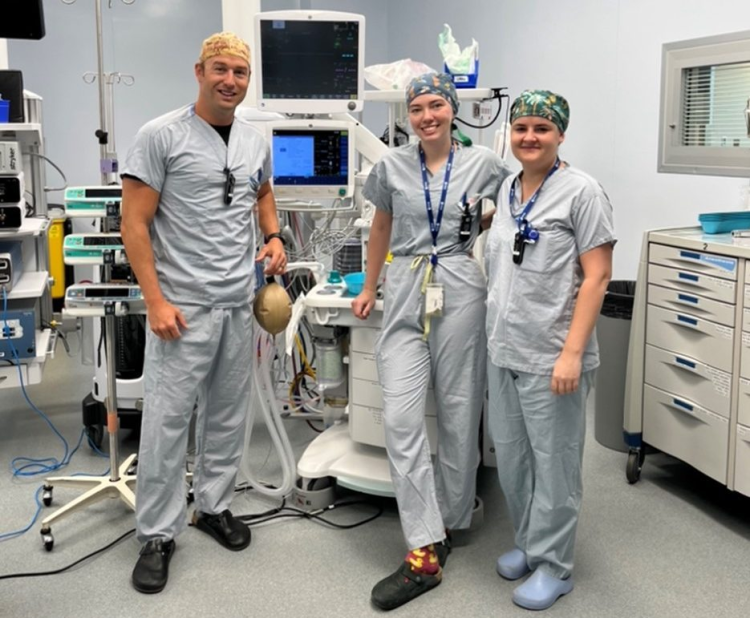
Members of Interior Health's first cohort to graduate from TRU's Anesthesia Assistant program included (left to right): Joel Sanbrooks, Cory Croft and Christina Musa.
A group of respiratory therapists are ready to set foot in the operating room as newly minted anesthesia assistants, due to a partnership between Interior Health (IH) and Thompson Rivers University (TRU).
The eight employees are the first Interior Health cohort to graduate from TRU's full-time accelerated Anesthesia Assistant (AA) post-diploma program. Using their knowledge base as respiratory therapy clinicians, the employees took part in the 11-month program, supported by IH's Anesthesia Assistant Clinical Instructor John Patton, certified clinical anesthesia assistants and anesthesiologists as preceptors.
"The anesthesia assistant cohort has been a great learning opportunity," said Christina Musa, anesthesia assistant trainee at Royal Inland Hospital (RIH) in Kamloops. "The combination of didactic and clinical skills brought through the distance, fast-track courses created an engaging and challenging program."
Participants were sponsored by their work sites, including RIH, Vernon Jubilee Hospital, Penticton Regional Hospital and Kelowna General Hospital. They will work for at least one year in their new roles as a return of service.
"Working as a registered respiratory therapist has contributed to my learning progression, but I had no idea that the scope of the AA was so broad: cell saver, massive transfusion, sed-line monitoring for depth of anesthesia and so much more," said trainee Shannon Lindsay.
These graduates will be members of the anesthesia care team in the operating room, delivering clinical services lead by anesthesiologist leaders throughout the process before, during and after surgery. They are eligible to pursue Canadian certification as certified clinical anesthesia assistants.
"In addition to the significant recruitment opportunity the AA training program brings to the operating rooms at RIH, having the anesthesiologists and anesthesia assistants involved in teaching and training has also been energizing as we transition to a more academic practice model, said Dr. Scott Bonneville, anesthesiologist.
"It has initiated a change in our culture, and the resulting conversations contribute to raising the standards of care for our patients as we strive to provide the most up-to-date, evidence-informed care."
Learn more about the program here.












